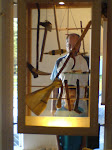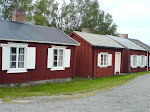It stands in the ACE-reporter number 4 for instance:
“… the ACE-study clearly demonstrates that children – and the adults we become – have been paying /…/ the deeds of our parents, and others who perpetrate child abuse.
Recently, scientists whose focus is neurobiological (the study of the brain and nervous system) compared he results of their research with the results of ACE-study research. The ACE-study was ideal for this purpose, not only because of the large number of people who participated in the Study (the sample size of over 17,000 people), but also because the Study was designed to asses numerous social, behavioral, and health outcomes, rather than just one condition, or one category of conditions.
Participating neurobiologists analyzed the ACE Study’s data against demonstrated neurobiological defects that result from early trauma, changes to bonding with other people, memory, and even where our bodies store fat. After careful analysis, what they found is that ‘early experiences can have profound long-term effects on the biological systems that govern responses to stress… Disturbances [in neuron-development] at a critical time early in life may exert a disproportionate influence, creating the conditions for childhood and adult depression, anxiety and post-traumatic stress symptoms.’
These shared findings have ‘the potential to unify and improve our understanding of many seemingly unrelated, but often co-morbid [occurring at the same time] health and social problems that have historically been seen and treated as categorically independent in Western culture.’
Why is this important? First, it is important to recognize that our ‘functional neuroanatomical and physiological systems are interactive and integrated and that behaviors and health problems cannot generally be attributed to the function of any single or particular system.’ Our bodies’ systems work together. Therefore, treating one aspect of a problem, without addressing the other aspects cannot possibly solve the problem completely. Comprehending this essential relationship can help improve both preventive and primary care medicine, giving patients and their caregivers the information they need to achieve the best possible health and social outcomes.
Second, this convergence of colleagues and their data ‘adds support for numerous effects of childhood adverse experiences on physical health. Stress is known from animal studies to be associated with a broad range of effects on physical health, including cardiovascular disease, hypertension, hyperlipidemia, asthma, metabolic abnormalities, obesity, infection and other physical disorders’ /…/ Without scientific data, the long-term effects of childhood trauma are otherwise easily brushed aside in favor of a more comfortable and convenient denial of the problem.
Third, we know that ‘retrospective reports of childhood abuse [that was documented at the time of its occurrence] are likely to underestimate actual occurrence /…/ [due to] effects of traumatic stress in childhood on the hippocampus.’ In other words, the incidence of child abuse is probably much greater than is reported, and even greater than remembered and acknowledged by the victims themselves. Not only is such trauma protected by secrecy and shame, but by the function of our own brains.
Equally important, this multi-disciplinary approach to research encourages future collaboration among scientists, all working at solving different pieces of what we are beginning to understand is the same puzzle. As the puzzle takes shape, the pipers [The Pied Pipers of Hamelin by the Brothers Grimm] lose ground.”
Hippocampus plays an important role in human memory (Bosch has written about the hippocampus role too from her angle).
“Simply stated, physical, psychological, and emotional trauma during childhood can result in damage to multiple brain structures and functions.”
A little carefully said?? It always causes damage, if not in younger ages but older, if it hasn’t been processed in some way when it happened or later in a good therapy or together with someone else outside all professions, with whom he truth could be told and worked through enough so the pressure and tension on the body got milder?? Or how one shall express this? But it is important not to moralize over those who maybe don’t succeed, because they are so harmed and haven’t ad the luck to encounter a helping, enlightened witness…
There is a lot of moralizing and authoritarianism in society today again!!?? Contempt for weakness, for those which aren’t as successful and strong and managing despite even quite awful circumstances:
“But look!!! See how I/he/she manages!!! (shouldn’t you then!!?? What a weak person are you??)”
And those clever – what are they sacrificing?? (see the blogposts about "the clever child" compared to "the disobedient child"). What can be hidden behind these facades?
And the clever is held up as a good example (in a similar manner as the child was treated once? And another child was held up as a bad and warning example!? And noone of these were allowed to be themselves, but play roles?)!! To legitimize political decisions that is doubtful… I feel and think quite angrily. Arthur Silber wrote an essay recently about being “intelligence analysts”!!
It also stands on the ACE-site:
“ACEs are surprisingly common among people of all social strata, and have far-reaching consequences. For many people, it's not possible to ‘just get over it’.”
No, it isn't, cleverly!!! Easy like that! But does some have interests in that people stay in this belief?? Even (or not least) on a political level?? That people blame themselves and take the guilt on themselves for things they don't have actual power over?? Quite ironical... (am I allowed to think that there is a lot f stupid people in th world?? And extremely stupid people!!?? Or both stupid and evil? Yes, evil exists, but where does evilness comes from? I have heard "You can't only blame the parents/the bosses!!!" And did the person that was told this? I would say she definitely didn't, yes, it was a she. She blamed herself very much and had done even more before, and now it had been strengthened again! To say so to a suffering person is power-abuse?? Entirely unempathic and insensitive and authoritarian, maybe also signs of totalitarianism? The power that talked, legitimizing abuse, which is what happens today in society and political life: abuse is legitimized, and it isn't the real criminal that are punished??).
Addition August 25: But I question many of the "holistic phenomena" that occurrs today... I think some can even be harmful!! And hiding things instead of revealing things that rather should be uncovered... In a belief that the truth is/could be harmful. I don't think it is... On the contrary. But with this approach that sensitive, harmed people shall be protected and spared truths by a lot of questionable treatments... Costing a lot of money too??
-//-
Nu min amatöröversättning av citaten ovan från ACE-rapport nummer 4:
“… ACE-studien visar klart att barn – och de vuxna vi blir – har fått betala /…/ vår föräldrars gärningar och även betalat de gärningar som andra som begår övergrepp/kränkningar på barn gör.
Nyligen har forskare vars fokus är neurobiologiskt (studien om hjärnan och nervsystemet) jämfört resultat från sin forskning med resultat från ACE-studiens forskning. ACE-studien var idealisk för detta syfte, inte bara för det stora antalet människor som deltog i studien (antalet var över 17 000 människor), men också därför att studien var utformad för att uppskatta ett antal sociala, beteendemässiga och hälsomässiga resultat, mer än bara ett förhållande eller en kategori förhållanden.
Deltagande neurobiologer analyserade/jämförde ACE-studiens data mot neurobiologiska effekter som är resultat av tidigt trauma, ändringar i förmågan att skapa band med andra människor, i minne och även i var våra kroppar lagrar fett. Efter noggranna analyser fann man att ’tidiga erfarenheter/upplevelser kan ha djupgående och långsiktiga effekter på biologiska system som styr responsen på stress /…/ Störningar [i utvecklingen av neuroner] vid en kritisk tidpunkt tidigt i livet kan få ett oproportionerligt inflytande, vilket skapar förutsättningar för barndoms- och vuxendepression, ångest och posttraumatiska stressymptom.’
Dessa delade fynd [mellan neurobiologer och forskarna i ACE-studien!?] har ’potentialen att ena och utveckla vår förståelse för många synbarligen orelaterade, men ofta medsjukliga/medpatologiska [också uppträdande samtidigt?] visavi ohälsa och sociala problem som historiskt har blivit sedda och behandlade som kategoriskt oberoende i den västerländska kulturen.’
Varför är detta viktigt? För det första, är det viktigt att erkänna/godta att våra ’funktionella neuroanatomiska och fysiologiska system interagerar och är integrerade och att vårt beteende och hälsoproblem inte generellt kan tillskrivas funktionen i något enstaka eller särskilt system.’ Våra kroppssystem fungerar ihop. Att behandla en aspekt av ett problem utan att adressera de andra aspekterna kommer därför inte rimligtvis att kunna lösa problemet helt. Att omfatta/förstå detta väsentliga/oundgängliga förhållande kan hjälpa till att utveckla både förebyggande arbete och primärvård och ge patienter och deras vårdgivare den information de behöver för att åstadkomma de bäst möjliga hälso- och sociala resultaten.
För det andra, detta sammanstrålande av kolleger och deras data ’ger adderat stöd åt otaliga effekter som negativa/skadliga barndomsupplevelser har på fysisk hälsa. Stress är känt från djurstudier att vara kopplat med vidsträckta effekter på fysisk hälsa, inkluderande hjärtkärlsjukdom, högt blodtryck, högt kolesterol (???), astma, onormala metaboliska fenomen, övervikt, infektion och andra fysiska rubbningar.’ /…/ Utan vetenskapliga data kan de långsiktiga konsekvenserna av barndomstrauman lätt viftas åt sidan till förmån för ett mer bekvämt och passande förnekande av problemet [sant! Som bara lugnar oss alla, men ingen egentligen tjänar på].
För det tredje, vi vet att ’retrospektiva rapporter av övergrepp/kränkningar i barndomen [som blev dokumenterade vid tiden när de skedde] troligen underuppskattar verkliga händelser. /…/ [beroende på] effekter på hippocampus av traumatisk stress i barndomen.’ Med andra ord, förekomsten av övergrepp/kränkningar på barn är troligen mycket större än vad som rapporterats och ännu större än vad offren själva minns och erkänner. Sådana trauman skyddas inte bara av hemlighållande och skam, utan också av funktioner i vår egen hjärna [skyddsmekanismer som individen måste ta till, men som senare orsakar problem av olika slag].
Lika viktigt, detta multidisciplinära angreppssätt på forskning uppmuntrar framtida samarbete mellan forskare, som alla arbetar på att lösa de olika delar i det som vi börjar förstå är samma pussel. När pusslet börjar få form förlorar pip(flöjt)blåsarna mark.”
Hippocampus spelar en viktig roll för vårt minne (Bosch har också skrivit om hippocampus roll, sedd från hennes perspektiv, som terapeut. Addering 25 augusti: jag kommer nog att skkriva ett blogginlägg om detta).
”Enkelt fastslaget; fysiska, psykologiska och känslomässiga trauman under barndomen kan resultera i skada i mångfaldiga hjärnstrukturer och –funktioner.”
”Skadliga barndomsupplevelser/erfarenheter är förvånande många bland människor i alla sociala skikt och har långt räckande konsekvenser. För många människor är det inte bara att ’komma över det’"!!!
Att hålla saker i check, ha kontroll på sig själv (och kanske vara "cool") och att inte ha några behov blir applåderat idag??? Se blogginlägget om ”the clever child ("det duktiga barnet"”!!! Att jämföra med "det olydiga barnet"
 Här en som gillar Beethoven och som övar flitigt!! :-)
Här en som gillar Beethoven och som övar flitigt!! :-) dn istället. Hans första pianosonater är ganska typiskt klassiska och de första tre ä
dn istället. Hans första pianosonater är ganska typiskt klassiska och de första tre ä r dedicerade till just Joseph Haydn. Han skrev 32 pianosonater.
r dedicerade till just Joseph Haydn. Han skrev 32 pianosonater.






























